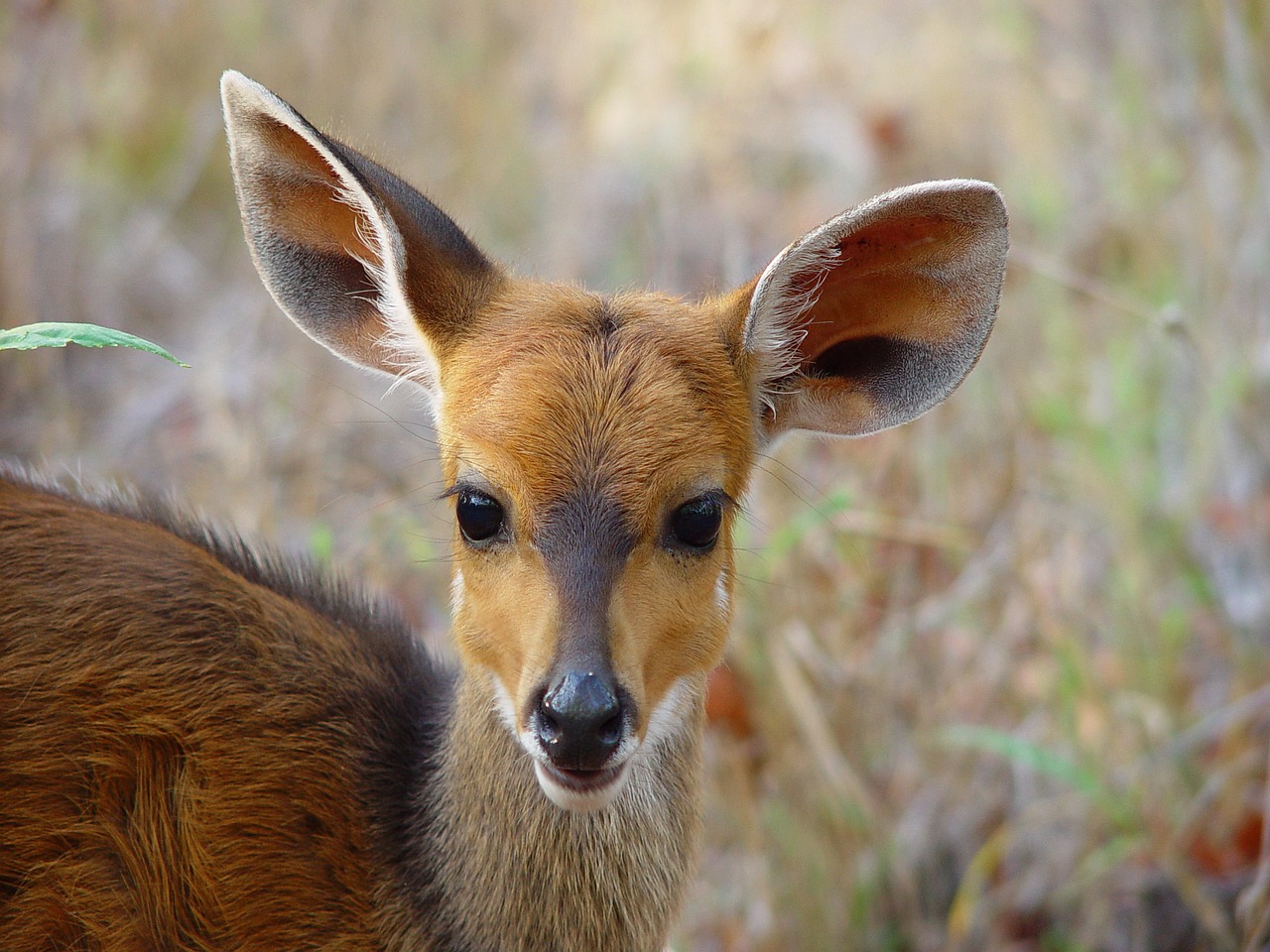Small game hunting in South Africa offers a unique way to experience the country’s diverse wildlife and landscapes. From agile springbok to elusive guinea fowl, hunters can explore a wide variety of species that thrive across open plains and bushveld. This type of hunting is accessible to both seasoned hunters and newcomers, making it a popular choice for those looking to enjoy the outdoors and test their skills.
We follow strict ethical hunting practices and regulations to ensure the sustainability of South Africa’s wildlife. Small game hunting not only connects us with nature but also supports conservation efforts and the protection of natural habitats. For anyone interested in African hunting safaris, small game hunts are a great introduction to the adventure and tradition that define hunting in this region.
[DYNAMIC-BLOGTABLEOFCONTENT]
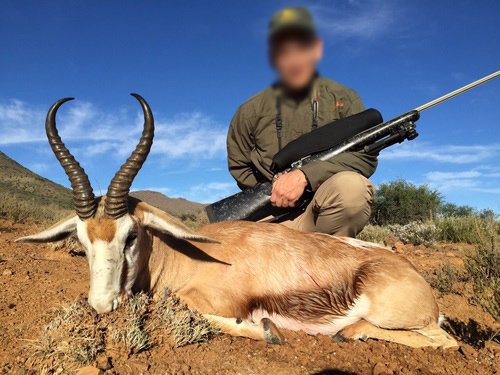
Key Takeaways
-
Small game hunting in South Africa offers diverse opportunities to hunt species like springbok, guinea fowl, and steenbok across varied landscapes, making it accessible to both beginners and experienced hunters.
-
Strict regulations, ethical practices, and permit systems ensure that small game hunting supports conservation efforts and the sustainability of wildlife populations.
-
Guided hunting safaris provide expert assistance, safety, and compliance with local laws, while customizable packages cater to family groups, skill levels, and personal interests.
-
Essential equipment includes appropriate firearms, optics, safety gear, and navigation tools, ensuring a safe and responsible hunting experience in South Africa’s unique environments.
-
Key hunting regions—such as the Eastern Cape, Limpopo, KwaZulu-Natal, and Free State—offer high game density, diverse habitats, and supportive infrastructure for memorable hunting safaris.
-
Small game hunting contributes culturally and economically, supporting rural communities, job creation, and wildlife conservation while offering meaningful outdoor experiences and traditions.
What Small Game Hunting Is In South Africa?
Small game hunting in South Africa describes the pursuit of animals like springbok, steenbok, guinea fowl, and rock pigeon across a range of habitats. This type of hunting complements the experience of a traditional African hunting safari, offering different challenges and rewards from Africa Big 5 and big game hunting. Many hunters choose small game hunting as a starting point before moving to larger species.
Licensed game hunting areas provide access to species such as:
-
Antelope: Springbok, duiker, and steenbok commonly found in open plains and semi-arid zones
-
Game birds: Guinea fowl and francolin often hunted in cultivated farmland and grasslands
-
Other small mammals: Jackal and hare encountered in bushveld and scrub
Guided African hunts ensure all small game hunting activities comply with conservation-focused regulations. Permits, bag limits, and specific open seasons help protect species and maintain ecological balance according to South African biodiversity laws. Ethical hunting serves sustainability efforts by reducing illegal off-take and generating funding for wildlife management.
Hunters find that small game hunting packages offer a mix of relaxation and excitement. The pace is slower compared to Africa Big 5 hunts, making it suitable for families and those new to hunting safari in South Africa. It’s also possible to combine small game packages with plains game or even mix in guided African hunts for a more personalized experience.
Game hunting safaris in South Africa typically include:
-
Access to several hunting concessions with high wildlife diversity
-
Professional hunters guiding every step for safety and compliance
-
Flexible packages allowing day trips or multi-day hunts based on interest
-
Trophy and non-trophy options to fit varied goals and experience levels
And for those focused on building skill and knowledge, small game offers a lower-pressure way to learn stalking techniques, firearm safety, and species recognition. Overall, small game hunting in South Africa fits well within a broad African hunting safari and supports ethical, sustainable wildlife use.
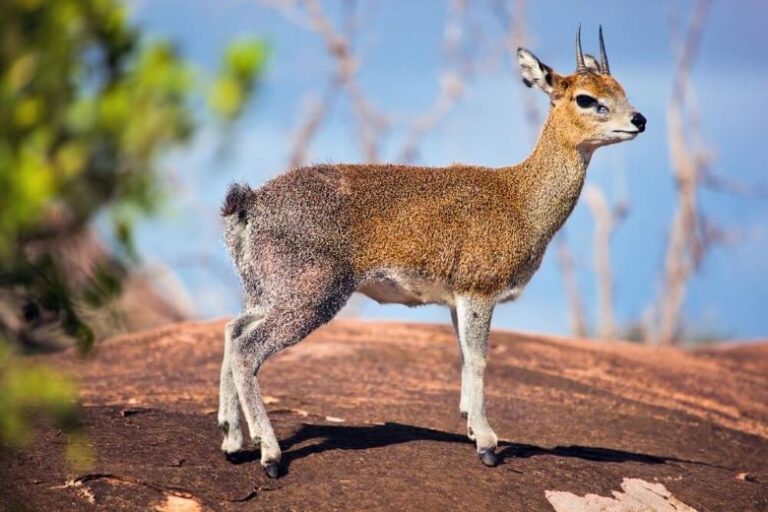
Popular Small Game Species
South Africa’s small game hunting scene offers wildlife variety and targets accessible for all skill levels. Small game species thrive across hunting reserves, complementing any African hunting safari.
Common Birds And Mammals
The most commonly hunted small game species in South Africa are both birds and mammals providing a mix of challenge and learning. Hunters regularly encounter:
-
Springbok: Abundant across open plains, springbok serve as a popular and accessible small antelope choice
-
Steenbok: Fast and alert, steenbok inhabit various veld regions, requiring careful stalking
-
Guinea Fowl: Noted for their flocking habits, guinea fowl are often found in agricultural or grassland zones, adding action to game hunting
-
Rock Pigeon and Dove: These birds present rapid flight paths and changeable flock sizes, ideal for developing accuracy
-
Francolin and Spur Fowl: Thick brush and edge habitats contain these ground birds, making them a rewarding target
Guided African hunts for small game also allow guests to practice strategies with lighter calibers—valuable before joining classic big game hunting experiences.
Regional Differences In Species
Species variety changes with landscape and region, so understanding these differences helps pick the right hunting package. In the Northern Cape, open savannah supports springbok and steenbok. Moving toward Limpopo and Mpumalanga, heavier bush and wetter zones introduce higher numbers of birds like guinea fowl and francolin.
Eastern Free State and KwaZulu-Natal provide habitat for grey duiker and bushveld birds, while Western Cape reserves hold healthy rock pigeon populations. Local rules influence season timings, bag limits, and available species—something our Game Hunting Safaris team explains for each destination.
Adding small game outings can tailor African hunting safari itineraries to fit personal interests, introduce new hunters, or simply offer more variety alongside big game or Africa Big 5 hunts. Guided African hunts make sure every participant stays safe and follows all local wildlife management guidelines.
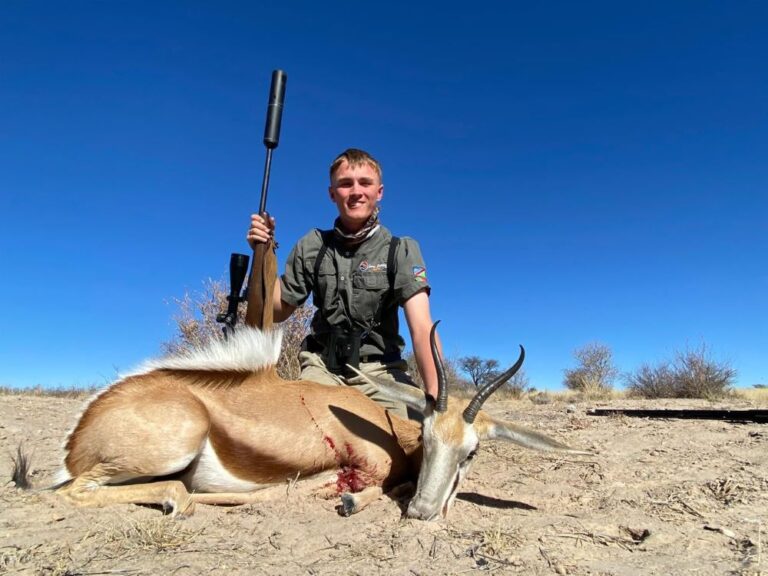
Hunting Methods And Regulations
South Africa’s small game hunting combines tradition with responsible stewardship, guided by a modern regulatory framework and strong ethical standards. Our approach at Game Hunting Safaris brings clarity and confidence to every African hunting safari, prioritizing compliance and conservation across diverse habitats.
Legal Requirements
Small game hunting in South Africa follows strict game laws. We only hunt in licensed areas designated for game hunting, with each region having well-defined open and closed seasons to protect population health. Hunters must obtain permits for each species—examples include official tags for springbok, guinea fowl, or francolin. Each permit includes bag limits, such as a maximum number of birds or antelope harvested per day.
Guided African hunts help avoid legal pitfalls, as professionals stay updated on shifting regional rules. For instance, some provinces allow hunting rock pigeons year-round, while others enforce seasonal bans. All participants must carry valid hunting licenses; any firearms or equipment used require documentation aligned with South African law. We partner with regulatory authorities and African Hunting Safari Broker agencies to maintain full compliance and promote successful, hassle-free outings.
Ethical Hunting Practices
All our African hunting safari packages support sustainable use and species conservation. We only pursue small game populations that surveys confirm can support hunting pressure, working closely with game farmers and wildlife agencies. During each hunt, we follow fair chase principles—no hunting from vehicles, no hunting at artificial water sources, and no targeting of young or breeding females.
We train all guides to identify targeted species, gauge population age structure, and monitor animal behavior, reducing undue disturbance. Every animal taken is recorded for post-hunt auditing, with records shared with conservation partners to help guide future quotas. We support clean, humane shots and immediate recovery of all harvested game, ensuring nothing goes to waste. By prioritizing ethical hunting practices, we contribute to South Africa’s broader conservation strategy, mirroring standards seen in Africa Big 5 and big game hunting operations, even at the small game level.
Overall, these methods transform small game hunting into a responsible, enjoyable facet of the hunting safari in Africa experience, building on a foundation of stewardship, legality, and respect.
Equipment And Gear For Small Game Hunting
Small game hunting in South Africa means bringing precise equipment and reliable gear. We select each item to fit the species, terrain, and duration of African hunting safaris. Choosing the right equipment helps us maintain ethical practices and safety standards throughout guided African hunts.
Essential Firearms and Ammunition
Rifles in the .22 to .243 caliber range suit most small game species, including springbok, steenbok, and birds like guinea fowl or rock pigeons. We often use shotguns—typically 12 or 20 gauge with appropriate birdshot loads—when targeting winged game. These choices keep recoil manageable and accuracy high, matching the skill level of both newcomers and seasoned hunters.
Optics and Sighting Tools
Scopes with clear optics and modest magnification, like fixed 4x or variable 2-7x models, perform best in changing bushveld light. Compact binoculars, often with an 8x32 or 10x42 configuration, help us spot game at distance and judge size without adding much weight.
Clothing and Footwear
Lightweight, neutral-colored clothing blends with the South African environment and manages heat. Durable, ankle-supporting boots protect feet while stalking across mixed landscapes. Layering helps us adapt to changing temperatures, especially during sunrise or sunset hunts.
Safety and Field Accessories
Eye and ear protection guard against noise and debris while shooting. We carry small game carriers, game shears, field knives, and compact backpacks for stowing gear and field dressing. Personal water containers and lightweight first-aid kits are standard on every hunting safari in South Africa.
Tracking and Navigation Aids
Reliable GPS devices, rangefinders, and marked maps support orienteering and safety in unfamiliar territories. Guides carry communication devices such as two-way radios for group coordination during African hunts.
Table: Recommended Gear for Small Game Hunting
|
Gear Type |
Typical Selection |
Use Case |
|---|---|---|
|
Firearm |
.22–.243 rifle, 12/20 gauge shotgun |
Game Hunting, birds, and small mammals |
|
Optics |
4x or 2-7x scope, 8x32 binoculars |
Sighting, distance judging |
|
Clothing |
Neutral layers, rugged boots |
Camouflage, terrain adaptation |
|
Safety Gear |
Eye, ear protection, first-aid kit |
Personal safety |
|
Accessories |
Small shears, knife, backpack |
Game processing, carrying supplies |
|
Navigation |
GPS, maps, radios |
Tracking, team coordination |
Ready gear lays the groundwork for a responsible and enjoyable small game hunting safari in South Africa. We integrate quality equipment into every Game Hunting Safaris experience, keeping our African hunting listings accessible, regulated, and rewarding for all skill levels.
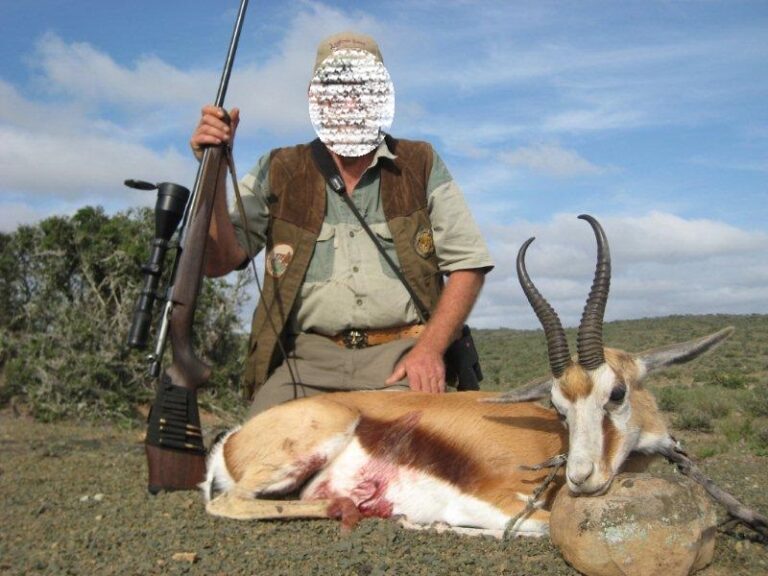
Best Locations For Small Game Hunting In South Africa
Identifying the best destinations for small game hunting in South Africa means considering game density, accessibility, and diverse habitats. Our guided African hunts cover regions that provide outstanding opportunities for small game, appealing both to experienced hunters and newcomers interested in African hunting safari adventures.
Eastern Cape
The Eastern Cape stands out for its variety in terrain and game abundance. We often spot springbok, duiker, and a wide range of game birds like francolin and guinea fowl here. Open plains and bushveld allow us to plan both walk-and-stalk and stationary hunts, creating a flexible environment for Hunting Safari in South Africa.
Limpopo Province
Limpopo Province offers dense bushveld and riverine forest, famous for its reliable small game populations. Hunters encounter steenbok, scrub hare, and flocks of doves and pigeons throughout the private Game Hunting areas. Many packages in this region integrate small game with options to pursue plains game or, for those interested, Africa Big 5 species under local regulation.
KwaZulu-Natal
KwaZulu-Natal gives access to unique terrain and excellent bird hunting. Our hunts regularly target Natal francolin, spur-winged geese, and occasional grey duikers. Wetlands and grasslands combine, supporting year-round diversity and enhancing our African hunting safari itineraries.
Free State
The Free State’s highveld grasslands enable productive hunts for spring hare, rock pigeon, and helmeted guinea fowl. We value this area for its accessibility from major cities and the consistency of game sightings. This region supports both day trips and extended Hunting Safaris in Africa, with plenty of suitable lodging options.
Location Comparison Table
|
Location |
Main Small Game Species |
Typical Habitat |
Package Features |
|---|---|---|---|
|
Eastern Cape |
Springbok, Francolin, Guinea fowl |
Plains, Bushveld |
Plains & wing-shooting, easy access |
|
Limpopo |
Steenbok, Doves, Scrub hare |
Bushveld, Riverine |
Combo hunts, private concessions |
|
KwaZulu-Natal |
Francolin, Spur-winged geese |
Wetlands, Grassland |
Bird-focused, unique terrain |
|
Free State |
Spring hare, Rock pigeon, Guinea fowl |
Highveld, Farmland |
Day trips, family-friendly packages |
Choosing a top location depends on personal interests, targeted species, and preferred environments. We customize each package at Game Hunting Safaris, matching hunters with areas that meet their expectations for African hunting safari adventures. Unique landscapes, reliable populations, and supportive infrastructure make these South African regions leading destinations for small game hunting.
Cultural And Economic Importance
Small game hunting in South Africa plays a vital role in both cultural traditions and economic development. Rural communities preserve generational knowledge through hunting practices, training new hunters in methods that reflect a unique heritage. Family groups, local clubs, and professional associations organize hunts that foster social bonds and promote responsible wildlife use. Local festivals often celebrate successful seasons, and regional dishes feature hunted small game like springbok and guinea fowl.
Game Hunting Safaris and African hunting safari packages include guided African hunts specifically designed for small game, adding significant value beyond Africa Big 5 and big game hunting experiences. These hunts give travelers authentic connections to local ways of life, allowing visitors to participate in activities alongside South Africans. Outdoor skills passed down over decades get shared with new audiences, enriching personal experiences and local identity.
Economically, small game hunting contributes to job creation and sustainable rural livelihoods. Hunting safari in South Africa generates revenue for landowners, guides, and hospitality providers. License fees, guiding services, and accommodation support small businesses in remote areas. A 2022 South African Department of Environment, Forestry, and Fisheries report estimated that hunting, including small game, sustains over 17,000 direct jobs in hunting-related sectors.
Conservation-focused hunting supports wildlife habitats by funding anti-poaching operations and land management. Revenue from African hunting safari packages might finance water provision, fence repairs, and local infrastructure improvements. With hunting in Africa following strict permit and bag limit regulations, landowners maintain healthy game populations and protect ecological balance.
And the demand for small game hunting listings continues to grow. Travelers seeking flexible and accessible alternatives to traditional Cape Buffalo hunts or big game hunting outings find these offerings provide an entry point into the world of guided African hunts. Small groups, families, and new hunters experience the best of a hunting safari in Africa, with opportunities for learning, cultural exchange, and economic participation all woven together.
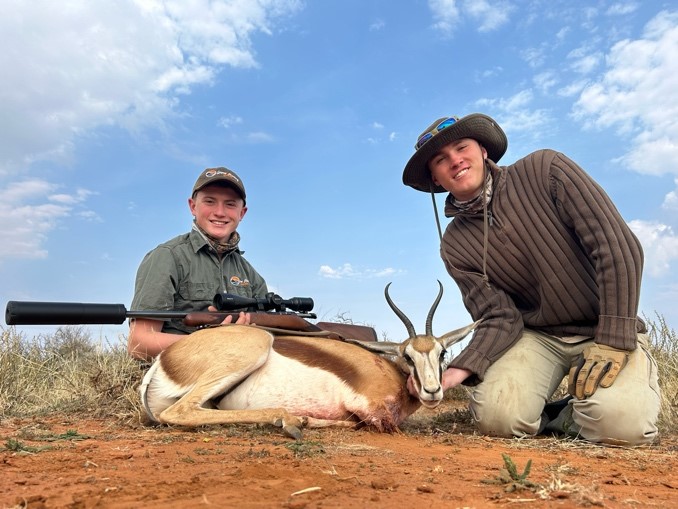
Conclusion
Small game hunting in South Africa offers us a dynamic way to connect with nature, culture, and tradition while supporting conservation and local communities. Whether we're seeking new challenges or looking for a family-friendly adventure, these experiences let us enjoy the outdoors responsibly and develop valuable skills.
By choosing ethical hunts and respecting regulations, we help ensure that South Africa's wildlife and landscapes remain vibrant for future generations. Embracing small game hunting enriches our travels and deepens our appreciation for this remarkable country.
Frequently Asked Questions
What is small game hunting in South Africa?
Small game hunting in South Africa involves pursuing species like springbok, guinea fowl, steenbok, and rock pigeon, typically in licensed game areas. It offers an accessible and adventurous introduction to the African hunting safari experience for both beginners and experienced hunters.
How is small game hunting different from big game hunting?
Small game hunting focuses on smaller mammals and birds, which require different stalking and shooting techniques compared to larger animals. It is generally more approachable for newcomers, offers varied challenges, and can be enjoyed by families or mixed experience groups.
Are there regulations for small game hunting in South Africa?
Yes, small game hunting is strictly regulated. Hunters must have valid licenses, adhere to bag limits, use appropriate permits, and follow seasonal restrictions to ensure ethical and sustainable hunting in line with conservation goals.
What equipment do I need for small game hunting?
Essential gear includes a suitable firearm (e.g., .22 to .243 caliber rifle or shotgun), quality optics, lightweight and neutral-colored clothing, durable footwear, and safety accessories. Proper equipment ensures safety, comfort, and successful hunts across various terrains.
Which are the best regions for small game hunting in South Africa?
Top regions include the Eastern Cape, Limpopo Province, KwaZulu-Natal, and the Free State. Each area offers diverse habitats, different species, and excellent hunting opportunities, allowing hunters to customize their safari experience based on preferences.
Can beginners participate in small game hunting safaris?
Absolutely. Small game hunting is ideal for beginners, and most hunts are guided to ensure safety, legal compliance, and skill development. Many packages are designed to be beginner-friendly and even suitable for family groups.
Why is ethical hunting important in South Africa?
Ethical hunting ensures long-term wildlife sustainability. It involves following fair chase principles, respecting quotas, and using humane hunting methods. This approach helps conserve species, maintain healthy populations, and supports local conservation efforts.
How does small game hunting benefit local communities?
Small game hunting creates jobs, supports rural economies, and funds conservation activities. It also preserves cultural traditions, strengthens community bonds, and contributes directly to wildlife habitat management and anti-poaching initiatives.
What is a typical small game hunting package like?
Packages can range from single-day trips to multi-day hunts. They usually include guided hunts, accommodation, meals, permits, and equipment rental. Many packages can be tailored to suit individual or group preferences and skill levels.
Do I need to bring my own equipment for small game hunting?
It depends on the outfitter. Some provide firearms, ammunition, and gear as part of their packages, while others recommend bringing your own. Always check with your guide or outfitter in advance regarding equipment requirements.

